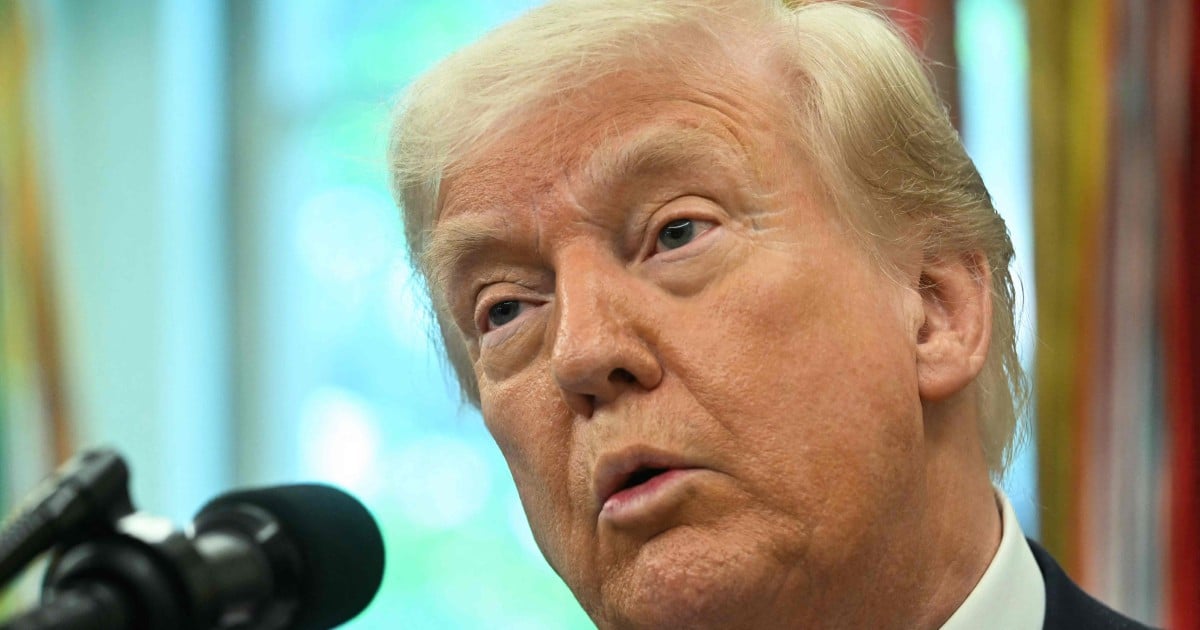KUALA LUMPUR: Malaysians and others residing in the United States illegally should take advantage of that country’s amnesty programme and return home — with US$1,000 (RM4,268) in their pockets.
The US Department of Homeland Security (DHS) recently launched a programme for voluntary self-deportation using the Customs and Border Protection agency’s CBP Home app.
The programme offers financial and travel document assistance to anyone who is residing illegally in the US to facilitate travel back to their home countries.
In a briefing with journalists from the Indo-Pacific region today, DHS assistant secretary for public affairs Tricia McLaughlin said the offer was for citizens of any country illegally residing the US.
She said, under the programme, illegal immigrants will get a US$1,000 stipend upon confirmation of travel arrangements out of the US.
According to the DHS website, the US government would also assist in booking tickets and/or with obtaining necessary travel documentation should a request be made.
“(Those who register for self-deportation) will be (temporarily) deprioritised for detention by ICE (Immigration and Customs Enforcement agency),” said McLaughlin.
“(By opting for self-deportation) they can come back legally (at a later date) and live the ‘American dream’.”
She said those who did not take advantage of the programme, should they be detained by ICE and forcibly deported, would lose the right to return to the US.
McLaughlin could not provide a breakdown of statistics of estimated illegal immigrants from countries in the Indo-Pacific currently in the US, nor the number currently under final deportation orders.
However, in February this year, then Malaysian ambassador to the US Datuk Seri Nazri Aziz had said there were, at the time, 435 Malaysians had been issued final deportation orders.
US State Department senior bureau official for East Asian and Pacific Affairs Sean O’Neill, in the same briefing, said the US was working with countries whose citizens were scheduled for deportation, as well as third countries willing to accept others’ citizens.
“The citizens of all countries want their governments to protect their borders (and this goes for the US).
“Why is this important? One is the ability to control who comes in (to any given country),” he said.
The second reason is that many of those who enter countries illegally do so with the aid of criminal organisations involved in human, drug and wildlife trafficking.
O’Neill said US President Donald Trump and his administration would not tolerate this.
Asked about people with valid visas and green cards being deported, McLaughlin stressed that the US and the Trump administration were not anti-immigration.
“If you are abiding by US laws, you have nothing to worry about, but if you are here on a visa or a green card, you are a guest in this country and you can act as such.
“And further, that’s a privilege, it’s not a right, and if you are glorifying terrorists or committing crimes on a visa or green card, we reserve the right… to revoke that privilege and will do so to further US national security,” she said.
O’Neill echoed McLaughlin, saying that while the Trump administration was not anti-immigration, it was anti-illegal immigrtion.
“I think that’s a policy that pretty much every government on earth shares… no government supports illegal activity within their borders,” he said.
On people with valid visas being detained and deported, he said that getting a valid visa was the first condition of being in another country legally.
“(However), the second basic condition is abiding by the terms of that visa, so if you have a valid visa (but) you start doing stuff that is inconsistent with the terms of that visa… obviously that visa doesn’t mean you get to stay,” he said.
To a question that, with the new reciprocal tariffs being implemented, US policy seemed to be “all stick and no carrot”, O’Neill said there were “an entire host of things” that the US continues to do with its allies in the Indo-Pacific.
He said there was still economic engagement, with the tariffs being just one part of that, adding that there were also cultural exchanges, combatting transnational crime, ensuring the security of the Indo-Pacific and law enforcement training.
© New Straits Times Press (M) Bhd






